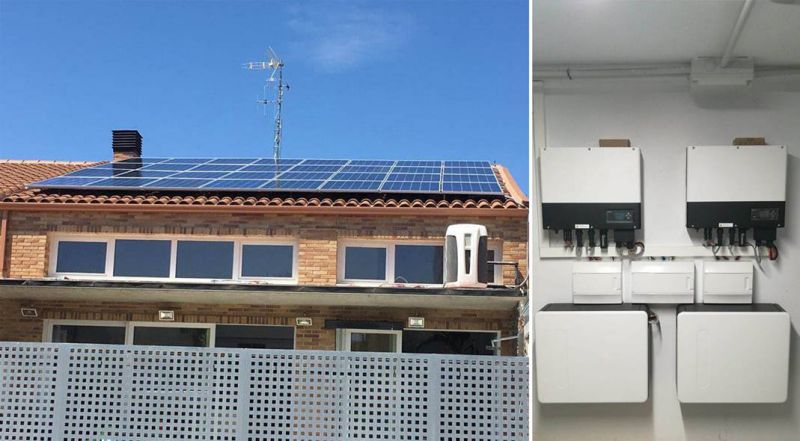introduce:
The power industry plays a vital role in global efforts to combat climate change. With the development of renewable energy, photovoltaic power generation shines as a green and low-carbon energy solution. By harnessing sunlight, photovoltaic systems produce zero-emission electricity, making them a sustainable and environmentally friendly alternative to fossil fuels. In this article, we take a closer look at why photovoltaics are becoming a key contributor to the global transition to a green future.

1. Zero greenhouse gas emissions:
One of the key reasons why photovoltaics is considered a green, low-carbon energy source is its ability to generate electricity without producing greenhouse gas emissions. Unlike coal, natural gas or oil, which releases large amounts of carbon dioxide and other harmful pollutants during combustion, photovoltaic systems convert sunlight directly into electricity through the photovoltaic effect. The process emits no greenhouse gases, helps mitigate climate change and reduces air pollution levels.
2. Abundant and renewable:
The sun provides unlimited energy, making photovoltaics a sustainable option. Solar energy is abundant and freely available, offering huge potential for harnessing its power. Unlike fossil fuels, which need to be mined, transported and burned, solar energy does not exhaust or exacerbate geopolitical tensions. As technology advances, solar panels become increasingly affordable, making the adoption of both small and large photovoltaic systems feasible.
3. Reduce dependence on fossil fuels:
By embracing photovoltaics, countries can reduce their dependence on fossil fuels and promote energy independence and security. Traditional energy sources such as coal, oil and natural gas are finite and vulnerable to price fluctuations and political instability. The adoption of photovoltaic systems not only diversifies the energy mix but also helps reduce global demand for non-renewable resources and promote global energy stability.
4. Minimal environmental footprint:
Compared with traditional energy sources, photovoltaic power generation has a significantly lower environmental footprint. Once installed, solar panels have a long life, typically over 25 years. Over their entire service life, they require minimal maintenance and emit no pollution. Land use of PV systems can also be optimized by installing panels on rooftops, parking lots and other underutilized areas, thus minimizing the need for large-scale ground installations.
5. Create jobs and economic opportunities:
The expansion of the photovoltaic industry has created a large number of job opportunities and economic benefits. According to the International Renewable Energy Agency (IRENA), the global renewable energy industry employed more than 11 million people in 2019, of which photovoltaic power generation accounts for an important share. Growth in the industry not only stabilizes employment, it also stimulates economic development and attracts investment in the manufacturing, installation and maintenance of solar infrastructure.
6. Energy harvesting and off-grid solutions:
Photovoltaics play a vital role in providing electricity to remote and underserved communities. In areas without reliable grid connections, off-grid photovoltaic systems can be deployed to power homes, schools and medical facilities, thereby boosting economic development and improving quality of life. Additionally, solar microgrids provide resilient solutions to natural disasters and can increase the reliability and sustainability of energy systems in vulnerable areas.
Photovoltaic power generation has become a green and low-carbon energy with many advantages. With their zero greenhouse gas emissions, renewable properties and economic opportunities, photovoltaic systems are shaping the transition to sustainable energy systems. Governments, businesses and individuals must continue to support the expansion of photovoltaics to accelerate the transition to a greener, more environmentally friendly future.
Post time: Nov-20-2023